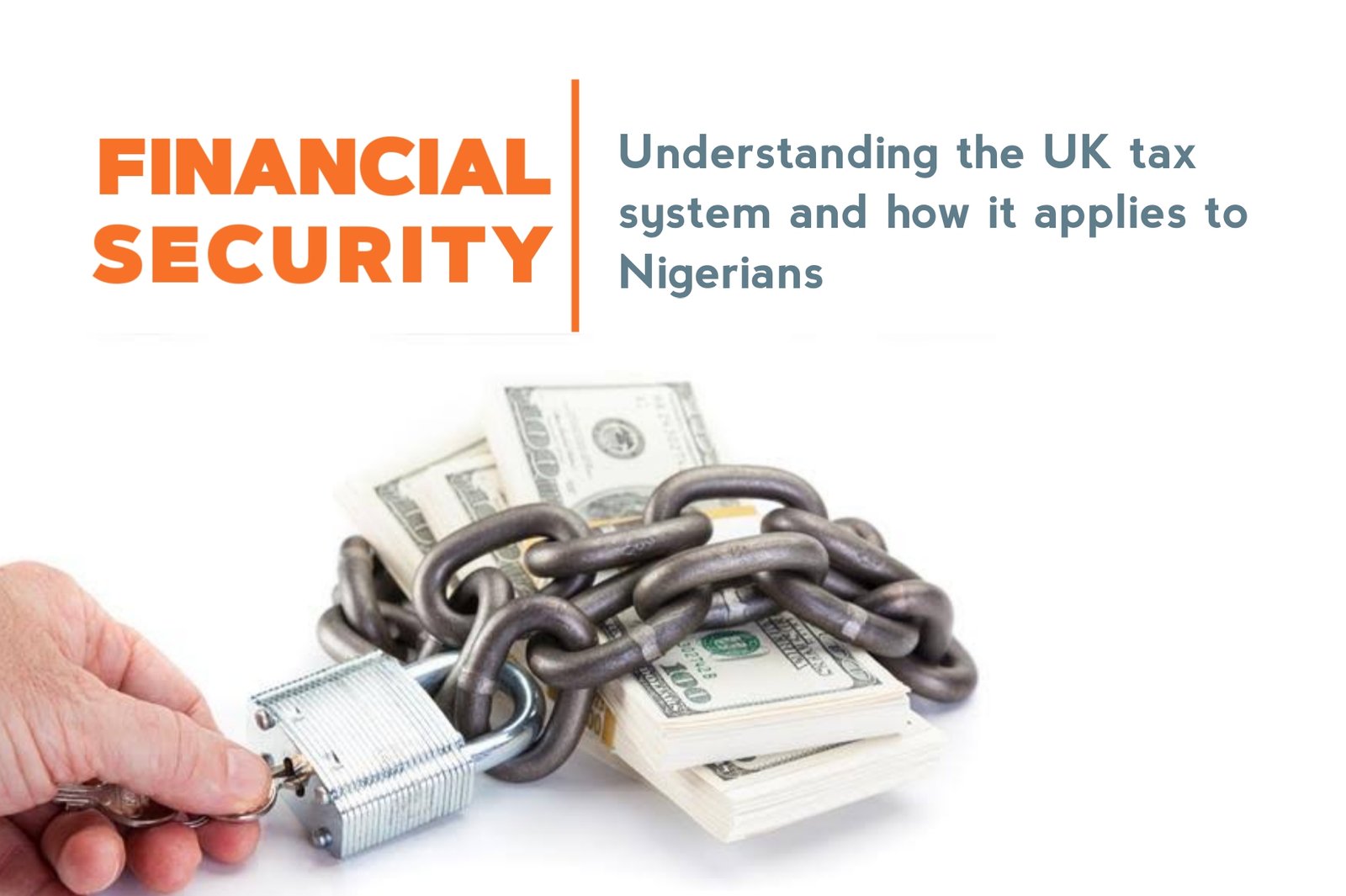Tenant Rights in the UK
Whether you're renting your first flat or you've been i...

While you work towards perfecting your career and living a comfortable life in the UK, carrying out financial security measures is important. Often, skilled professionals do face some economic challenges, such as unexpected expenses, or fluctuating income. This scenario is all too common for many skilled professionals. However, financial security can handle these unexpected emergencies, as it helps you achieve your financial goals seamlessly. Nevertheless, in this guide, we’ll explore the UK tax system, providing insight into taxation and banking for Nigerian workers in the UK.
Different types of taxes apply to international skilled workers, including Nigerian workers. Here is a breakdown of the various types of taxation systems in the UK of which Nigerian workers in the UK must be aware:
Read Also: Visa Rules for Skilled Worker Nigerians in the UK
Income tax is a type of tax paid by all workers residing in the UK. This type of tax is paid by worker on their earnings. However, workers do not pay tax on all their earnings. Among the various ways to generate income, workers pay tax on salary or wages, profits made if self-employed, pensions, etc. They do not pay tax on incomes like trading allowance (first £1,000 as self-employed), income from tax-exempt accounts, dividend allowances, etc.
The income tax rate differs from each worker’s level of income. That is, the tax rate depends on how much your income is and falls within each tax band. Nevertheless, below are the different tax rates for each income level:
| Tax Band | Tax Rate | Taxable Income |
| Personal Allowance | 0% (Tax-free) | Up to £12,570 |
| Basic Rate | 20% | Between £12,571 and £50,270 |
| Higher Rate | 40% | Between £50,271 and £150,000 |
| Additional Rate | 45% | Over £150,000. |
Workers in the UK also pay their National Insurance contributions to qualify for certain benefits and pensions. To be eligible for this tax, workers will need a national insurance number, which ensures that national insurance contributions and taxes are recorded against their name.
Workers who are up to 16 years of age or over and earn at least £242 per week or a profit of at least £12,570 a year are entitled to the NICs benefits. However, the NICs program is classified into different classes: class 1, class 2 and class 4, and each class depends on one’s status and earnings. Employees fall under class 1, while classes 2 and 4 are classes for self-employed individuals, with different rates and thresholds.
Value Added Tax is a tax that is applied to most products and services sold by VAT-registered businesses. Thus, as a VAT-registered business owner in the UK, it is important to understand the tax associated with VAT and the registration process.
| VAT Offers | VAT Rates | Goods And Services Applied |
| Standard Rate | 20% | Most goods and services |
| Reduced Rate | 5% | Applied to some goods and services such as children’s car seats and home energy |
| Zero Rate | 0% | Applied to essential items such as food and children’s clothes |
Capital gain tax is a kind of tax in the UK that is based on profit. Residents of the UK get to pay the tax when they sell, give away or dispose of something that has increased in value. For instance, if you bought a product for the rate of £60,000 and later sold it at the rate of £100,000, the profit made is £40,000. You’ll be required to pay a tax from the £40,000 interest. However, the capital gain tax differs in rate; it depends on the product you are reselling, giving out or disposing of.
Inheritance tax is a kind of British tax that is paid on the money, property and possessions of a deceased. This type of tax is only payable if the inherited assets are valued to be £325,000 or more. If the value of the assets is below the minimum threshold, then everything is left with either your spouse, civil partner, a charity or a community amateur sports club.
In addition, if the deceased leaves a home to their children including adopted, foster, stepchildren or grandchildren, the minimum threshold can increase to £500,000. Overall, the standard inheritance rate in the UK is tagged at 40%, and it must be paid at most, six months after the death of the individual.
If you’re a Nigerian living in the UK, your tax obligations depend on your residency status:
Choosing the right bank and accounts can significantly impact your financial management. Here are different banking options in the UK:
Read Also: New Passport Policy for Nigerians in Diaspora
To open an account in the UK, follow these easy step-by-step guides:
By understanding the UK tax system and the step-by-step process of opening a bank account, you can secure and manage your finances efficiently in the UK.
Read Also: Visa Rules for Skilled Worker Nigerians in the UK
Read Also: Transportation In The UK: Navigating Buses, Trains, and More
3 Comments